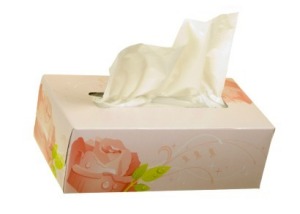The days are getting shorter, the leaves are starting to fall, and the temperature is slowly dropping; autumn has officially arrived! You may also notice that you’re beginning to experience itchy eyes, sniffling, and constant sneezing. Could it be the common cold? Maybe. However, if your symptoms haven’t stopped, you might be dealing with fall allergies.
According to What to Do About Allergies, a Special Health Report from Harvard Medical School, the ragweed plant, the most common agent of fall allergy symptoms, starts to produce pollen from late summer up until the fall. Allergic rhinitis, or “hay fever”, may not be harmful to humans, but it does trigger attacks in the immune system. Even those living far away from areas with ragweed can be affected by it since pollen travels on the wind for hundreds of miles.

What can be done to combat allergic reactions? Studies have suggested the following easy tips for college students to follow:
1. Limit your time outdoors to afternoons. If you want to play football in the Green with your friends, do so in the afternoon because this is when pollen and mold spore counts are lowest.
2. Wash up as soon as you return from being outside. Clean your hands and face, and take a shower to get rid of any pollen you may have collected from the outside air. Your roommate would probably appreciate it too.
3. Turn on your air conditioner. Keep your windows closed and keep the A/C on to clean out the air inside and keep the outdoor allergens outside where they belong. All the dorms should come with air conditioning. Take advantage of what NJIT housing has to offer!
4. Use a neti pot to rinse out your nose. A salt-water solution can be extremely effective in clearing your nostrils of pollen. Neti pots are super affordable for someone on a college budget and can be purchased at any drugstore.
5. Avoid eating certain foods. Here’s a fun fact: bananas, melons, and chamomile have the same proteins as those found in ragweed, which can make your symptoms worse.
6. Keep your dorm clean. As much of a pain as it is, it’s essential to regularly vacuum your floor and use a dust cloth to clear away any airborne particles in your room. Besides, it feels great knowing that your dorm is freshly cleaned!
7. See a doctor if your allergies are interfering with daily activities. Your doctor will be able to figure out what exactly is triggering your reactions and can treat you accordingly.
by Briana Mancenido
































